 |  |  |  |  | 0 reviews |
This is our step-by-step guide on how to make beef jerky. Making beef jerky is real easy to do; it’s likely how many of us started down the dehydrator road. Beef jerky is a great first dehydrator project and well worth checking out.
We’re sharing our traditional beef jerky recipe. We’re taking a page from our book titled Beef Jerky Recipes: A Beef Jerky Cookbook: How to Make Beef Jerky Using Your Food Dehydrator, available only on Amazon. Check it out here.
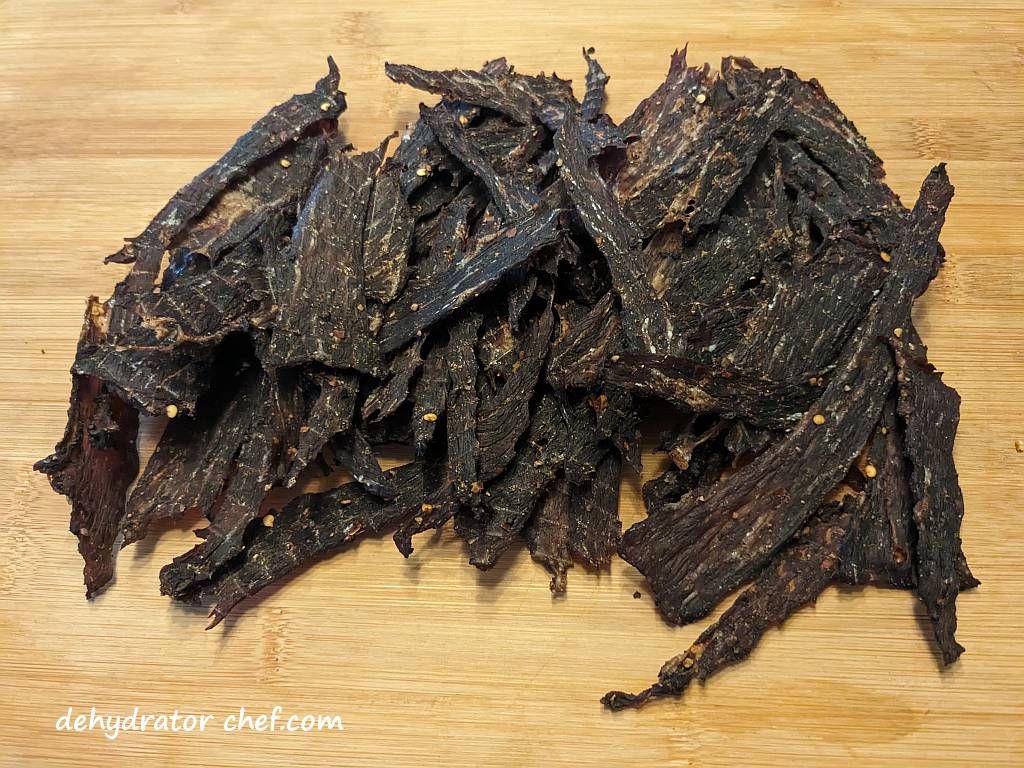
Taking our Dehydrator Chef approach, we are using already thinly sliced beef. Our local grocer carries a selection, and today, we’re using thinly sliced stir fry taken from the beef bottom round, which is a relatively lean cut.
So, let’s get started making some beef jerky.
Table of Contents
- How to Dehydrate and Make Beef Jerky
- Supplies Needed to Make Beef Jerky
- Ingredients
- Beef Jerky Marinade
- Preparing the Beef Jerky Marinade
- Preparing the Meat to Make Beef Jerky
- Combine Ingredients
- The Next Day
- When is the Beef Jerky Done
- Storing Beef Jerky
- How Long is the Beef Jerky Good For
- Insider Tips
How to Dehydrate and Make Beef Jerky
Beef jerky is a popular trail snack, busy-day lunch replacement, and all-around tasty food option.
Making beef jerky in your food dehydrator is easy, and we’re making it even easier.
Supplies Needed to Make Beef Jerky
- Food dehydrator
- Large bowl for mixing the marinade ingredients
- Leak-proof container, such as a large mixing bowl
- 1-gallon size zip-top freezer bags for marinating and storage
- Colander
- Vacuum sealer (optional)
- Vacuum sealer rolls for making custom-size bags (optional)
Be sure to opt in on using a leak-proof container. I can’t count the number of times that marinade bags have seeped or leaked. Mess avoided.
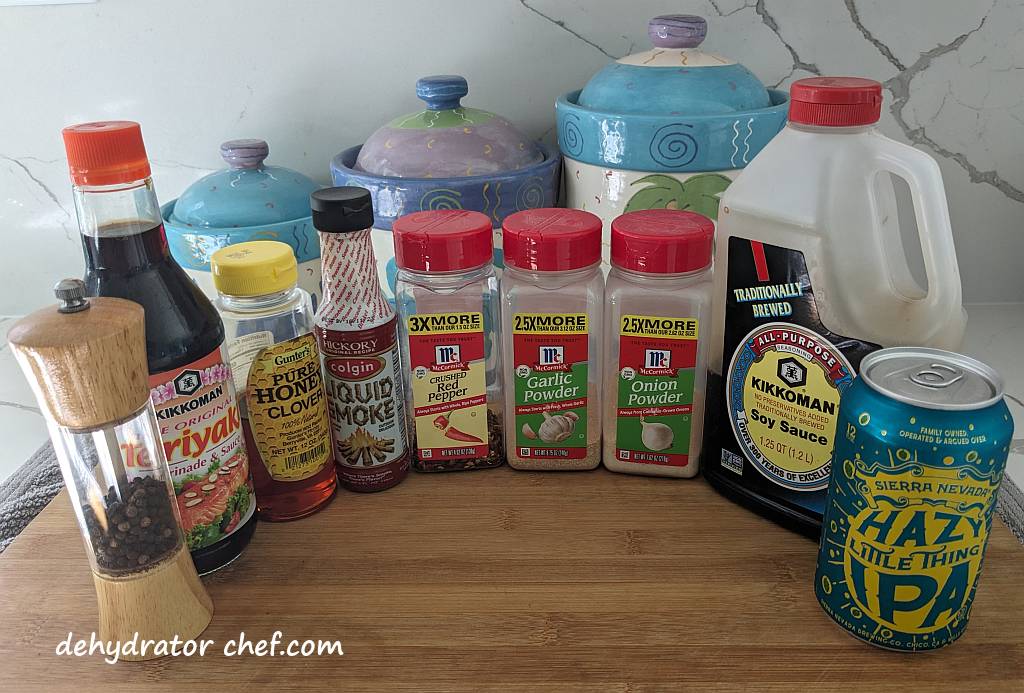
Ingredients
- Approximately 1 pound of stir fry beef strips
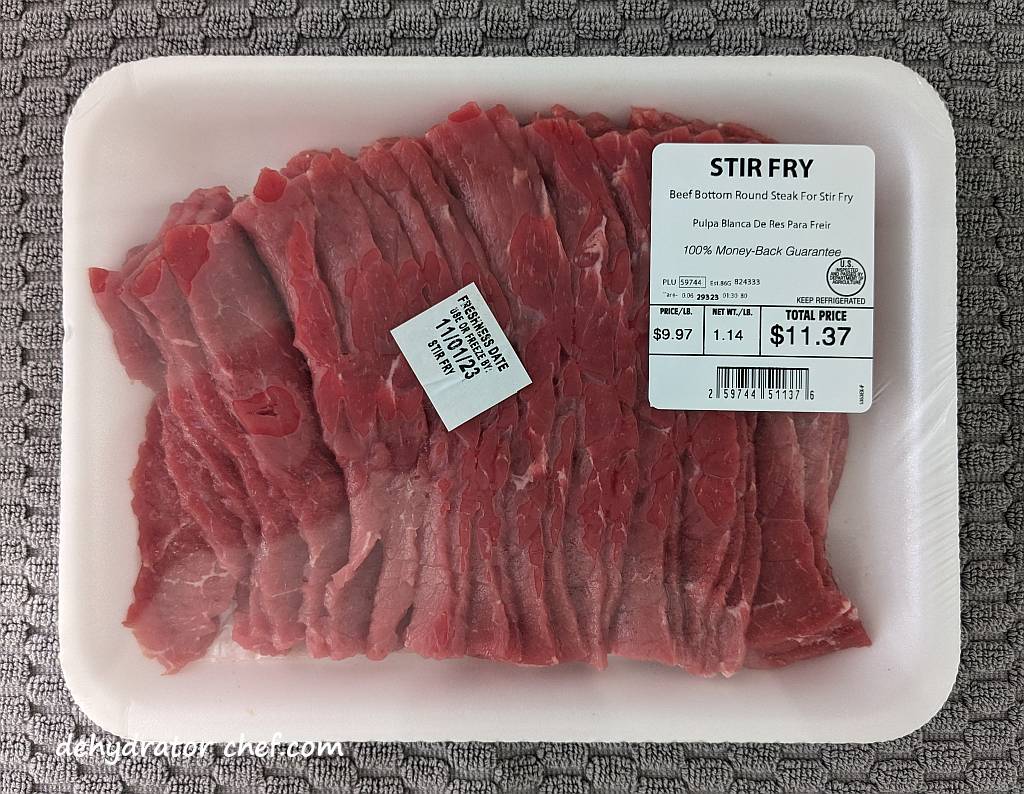
Our recipe calls for one pound of stir fry strips. Most dehydrators will easily accommodate this much when you make beef jerky. No extra drying trays are needed.
Beef Jerky Marinade
Gather together all of the marinade ingredients so you don’t overlook or forget anything.
- 1/2 cup beer
- 1/3 cup teriyaki sauce
- 1/4 cup soy sauce
- 1 tablespoon honey
- 2 teaspoons freshly ground black pepper
- 2 teaspoons liquid smoke
- 2 teaspoons onion powder
- 2 teaspoons garlic powder
- 1 teaspoon red pepper flakes
Makes approximately 1-1/3 cups of beef jerky marinade.
Do not skimp on the quality of these marinade ingredients. Don’t use inferior ingredients when you go to the trouble to make beef jerky. No knock-off brands; read the label and get the good stuff! You will find lesser-known and house-branded bottles labeled as soy sauce. We’re not so sure these are soy sauce. Just read over those ingredients. If it reads something like this, — hydrolyzed corn and soybean protein, corn syrup, salt, caramel color, skip it.
Preparing the Beef Jerky Marinade
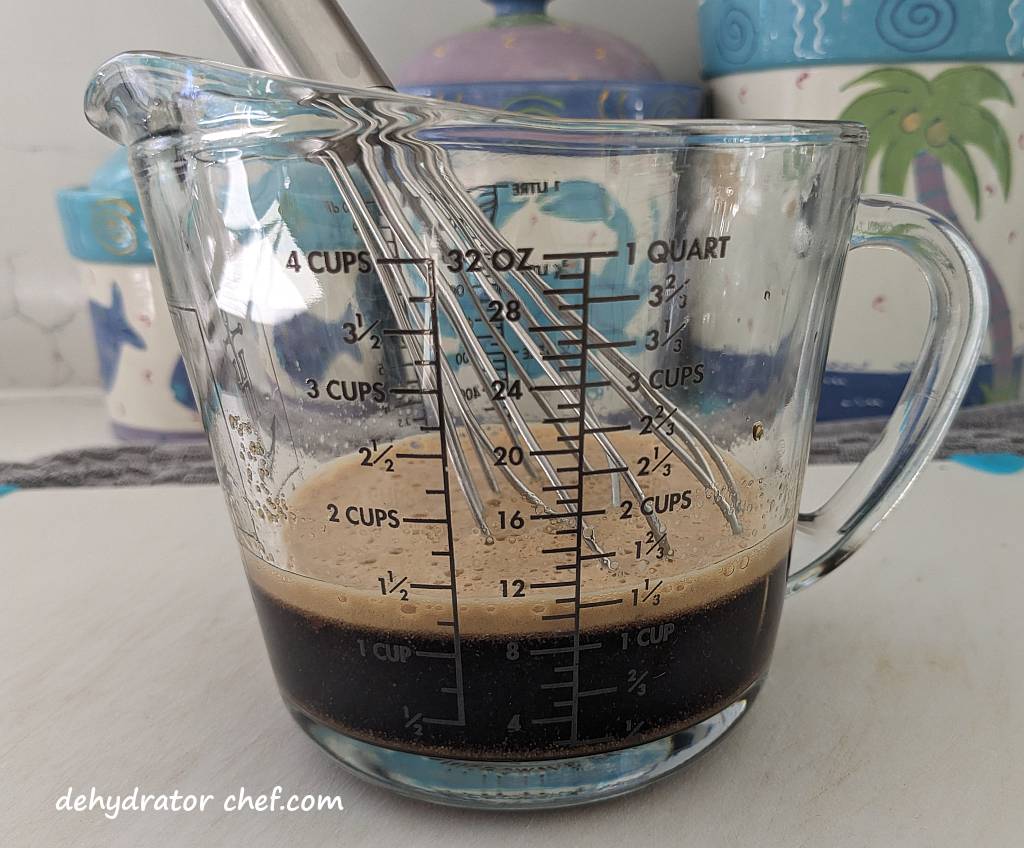
In a bowl, add the marinade ingredients and mix well to combine. Let the marinade ingredients rest for 15 to 20 minutes, letting the dry spices hydrate and the flavors blend.
Preparing the Meat to Make Beef Jerky
Stir fry beef is mechanically sliced into uniform-sized pieces, then portioned and packaged for presentation. The packaging process will fold, shape, and bend irregularly shaped beef strips for a uniform presentation.
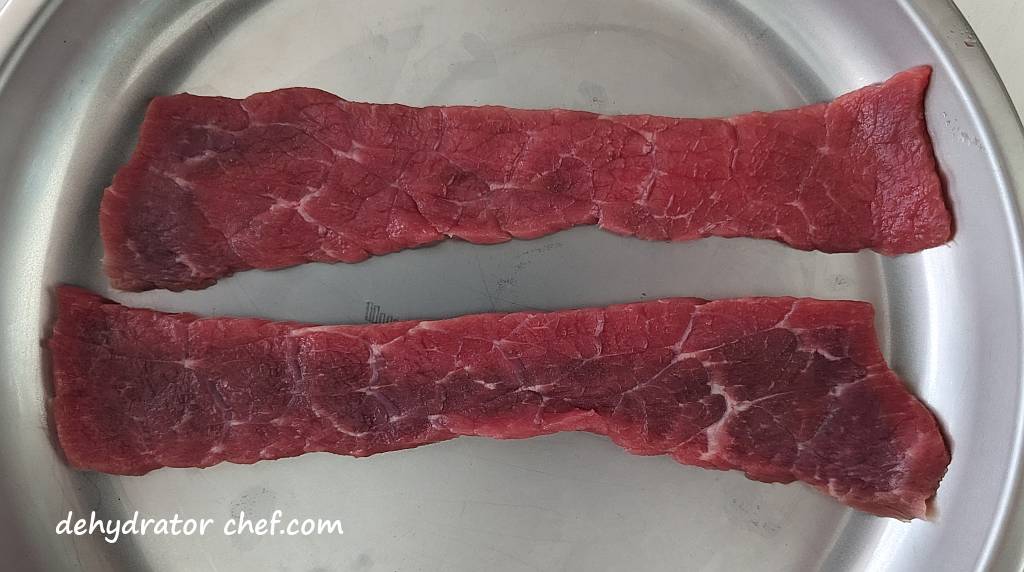
Separate the stir fry meat strips into individual pieces and loosely place them into a one-gallon zip-top bag. Take the time to separate and unfold each of the thinly sliced strips as you go. This step is crucial, as you want the marinade to contact the entire surface of each strip.
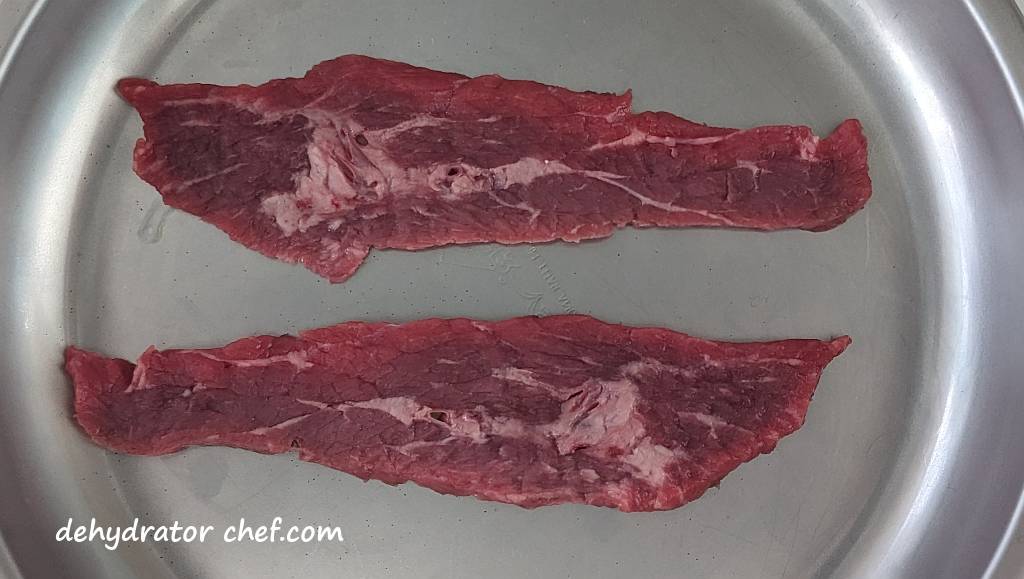
Combine Ingredients
Pour the marinade mix into the one-gallon zip-top bag to cover the meat strips.
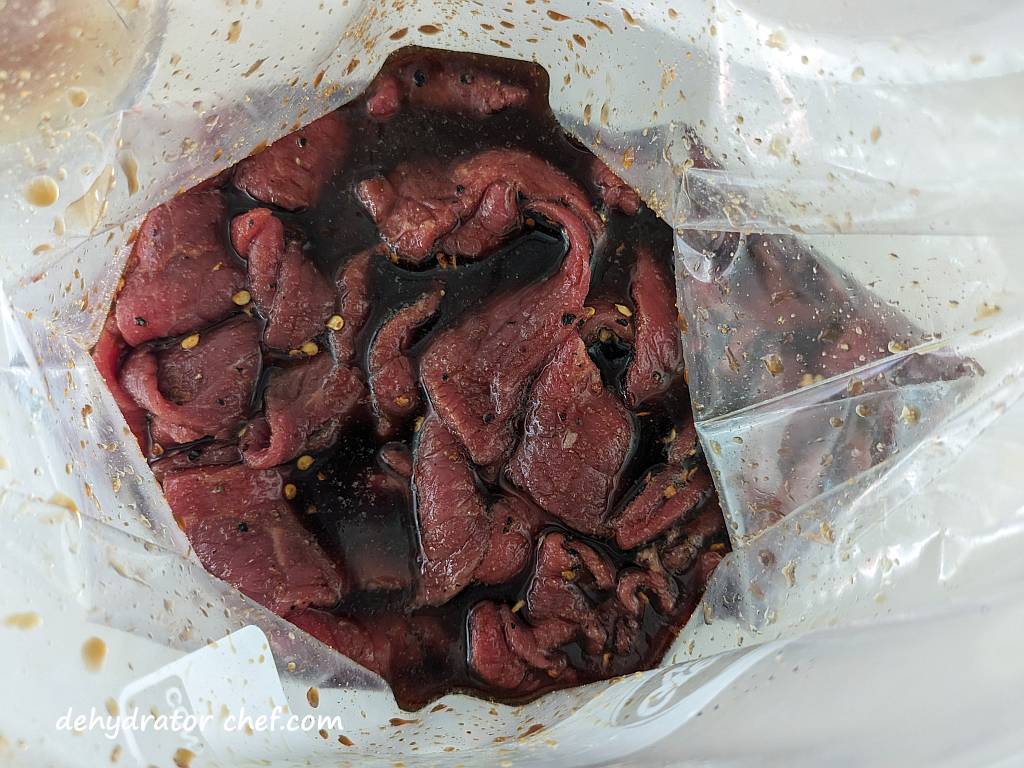
Using your hands, thoroughly mix the meat and the marinade so everything is well coated.
Seal the bag, removing as much air as possible, then place the zip-top bag into a leak-proof container, such as a mixing bowl, and place it into the refrigerator.
After an hour, open the bag and mix again. Repeat this step in another hour.
Continue to refrigerate overnight, and knead the bag several times every few hours to mix.
The Next Day
Drain the bag’s contents into a colander over a bowl, reserving the marinade liquid. You’ll find the meat has absorbed quite a bit of the marinade.
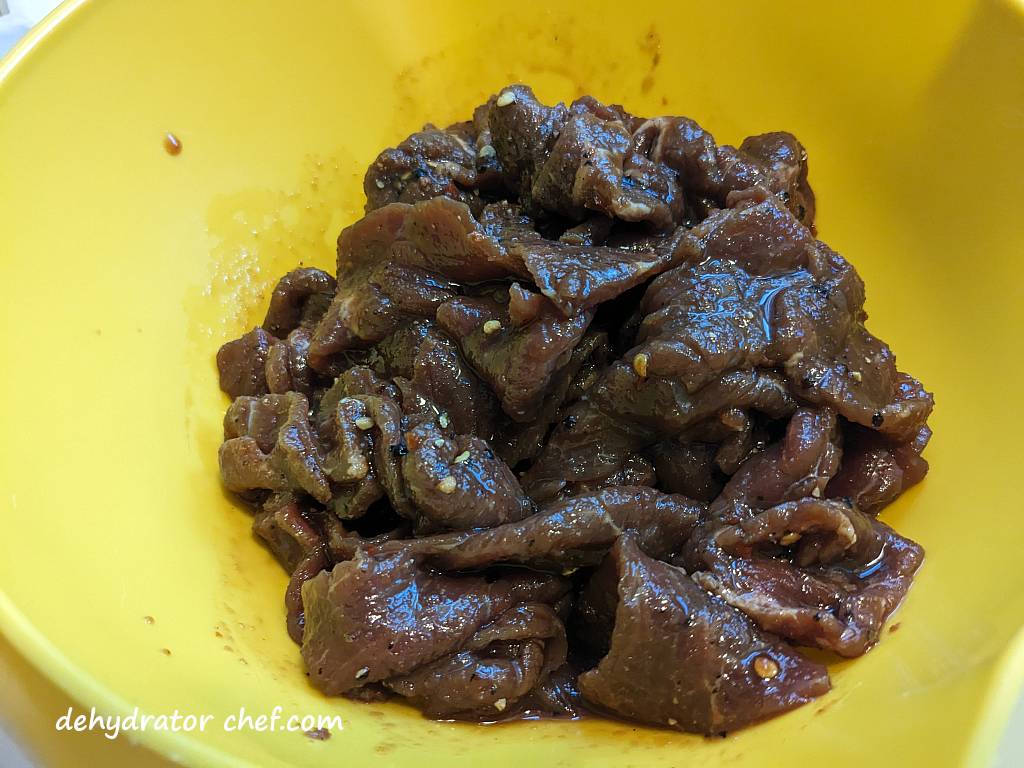
Unfold and lay out the meat strips onto your drying trays. As you do this step, the meat strips should all be a dark, uniform color. This dark uniform color means the entire meat strip has interacted with the marinade. Set aside any strips that appear lighter or have mixed shading. We’ll talk to those in a minute.
Take care not to overlap the strips on the dryer trays and to leave enough space for good airflow.
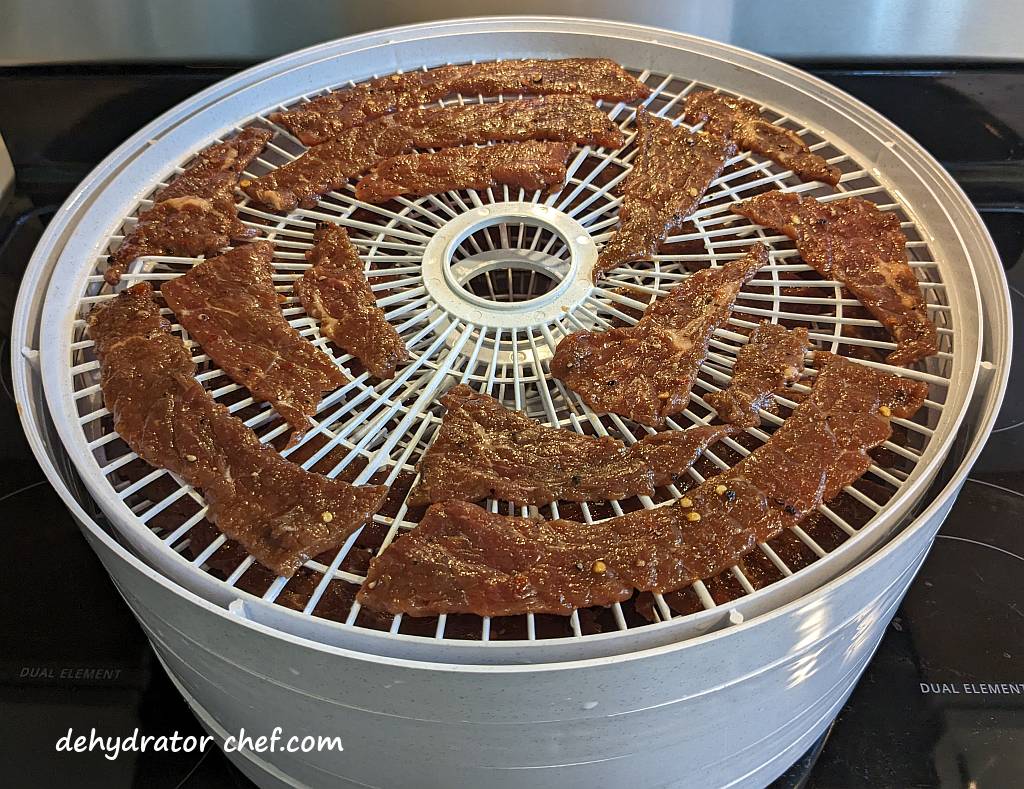
Plug in your food dehydrator and dry at the manufacturer’s recommended dehydrating temperature for 6 to 8 hours. Typically, 160 °F / 71 °C The exact time and temperature will depend on your food dehydrator, ambient conditions, product spacing, and the jerky itself.
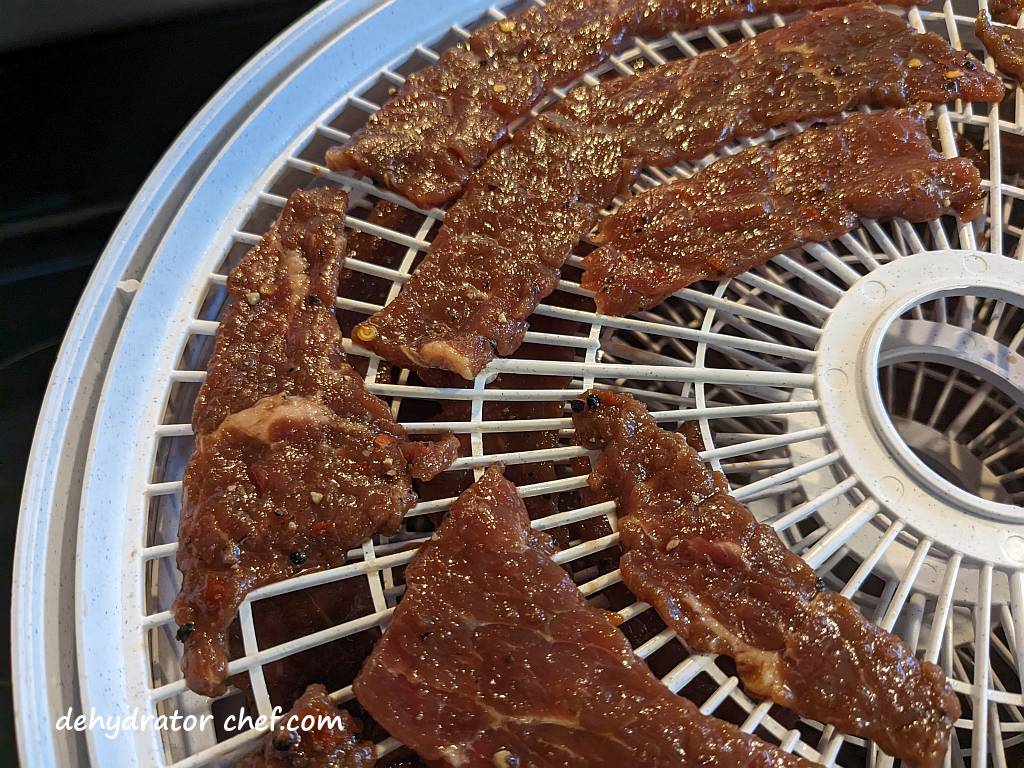
Now, for those meat strips that we set aside because they were not fully marinated. Into a new zip-top bag, add the reserved marinade and meat strips. Give them a good mix and refrigerate overnight to dehydrate the following day.
When is the Beef Jerky Done
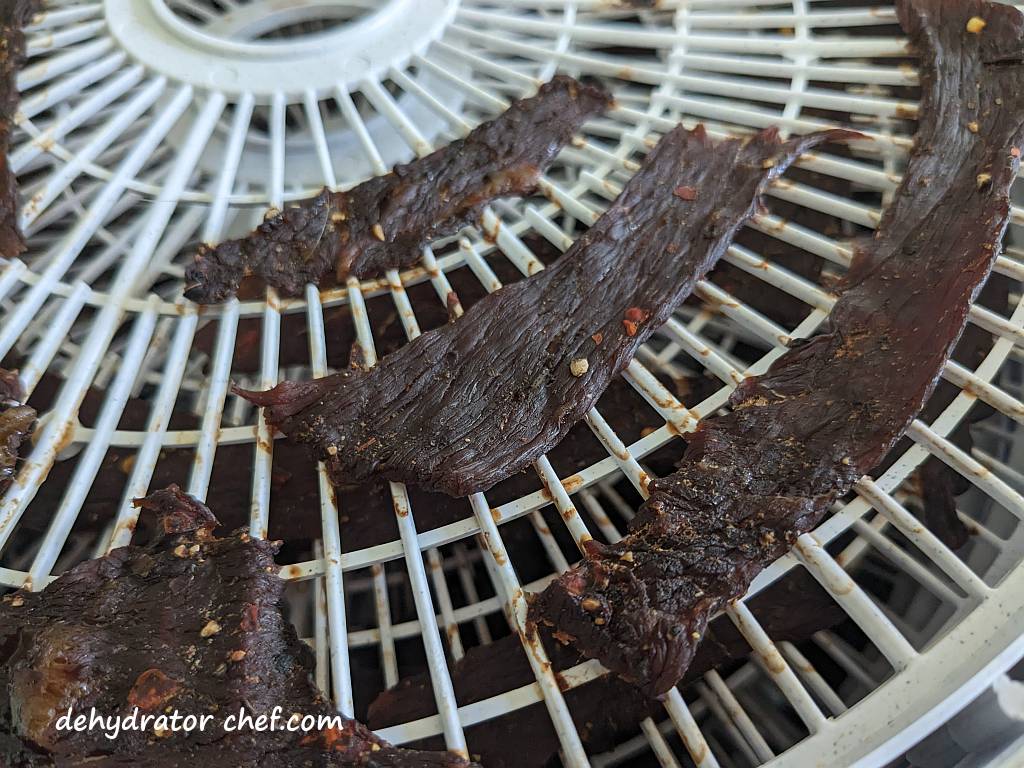
Beef jerky made with stir fry meat usually takes about 6 to 8 hours to dehydrate fully. Of course, that depends on your food dehydrator and an assortment of other factors. The timing depends on variables, including ambient conditions like the humidity, how you packed the trays, and the food itself.
First, does the jerky look done?
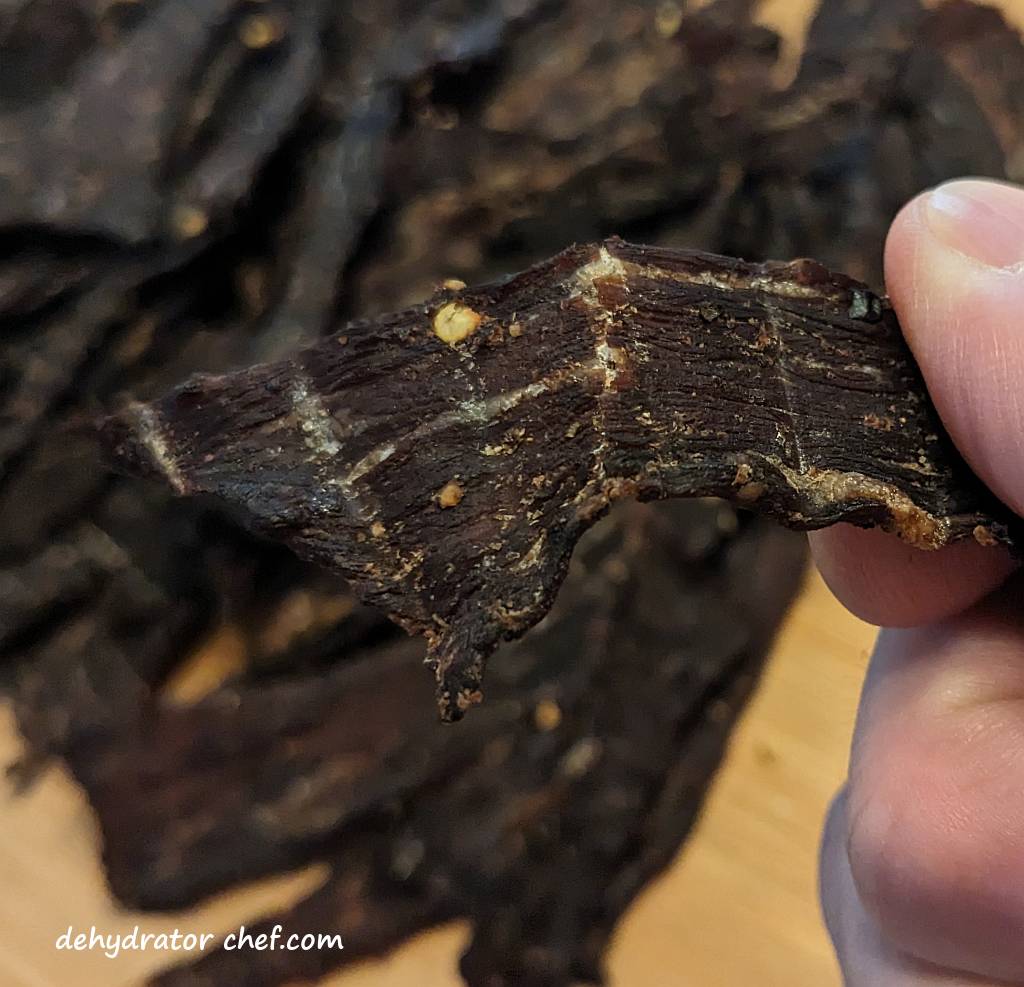
Fresh off the dehydrator, the beef jerky will be warm and pliable. Let it cool down. Bend a few pieces; they should look like you are bending a green stick. Some of the thinner pieces might break, but overall, do they bend like a green stick? Can you see meat fibers at the bend? If so, then it’s done.
Storing Beef Jerky
For conditioning and short-term storage of a week or two, I’ll store the beef jerky in a zip-top bag in the refrigerator. Two weeks is about how long a batch of this beef jerky will last.
For longer-term storage, I’ll portion out the beef jerky, then vacuum seal and freeze it. Vacuum sealing significantly reduces the chances of freezer burn and keeps the beef jerky ready to go. Just pull a pack from the freezer, and your set.
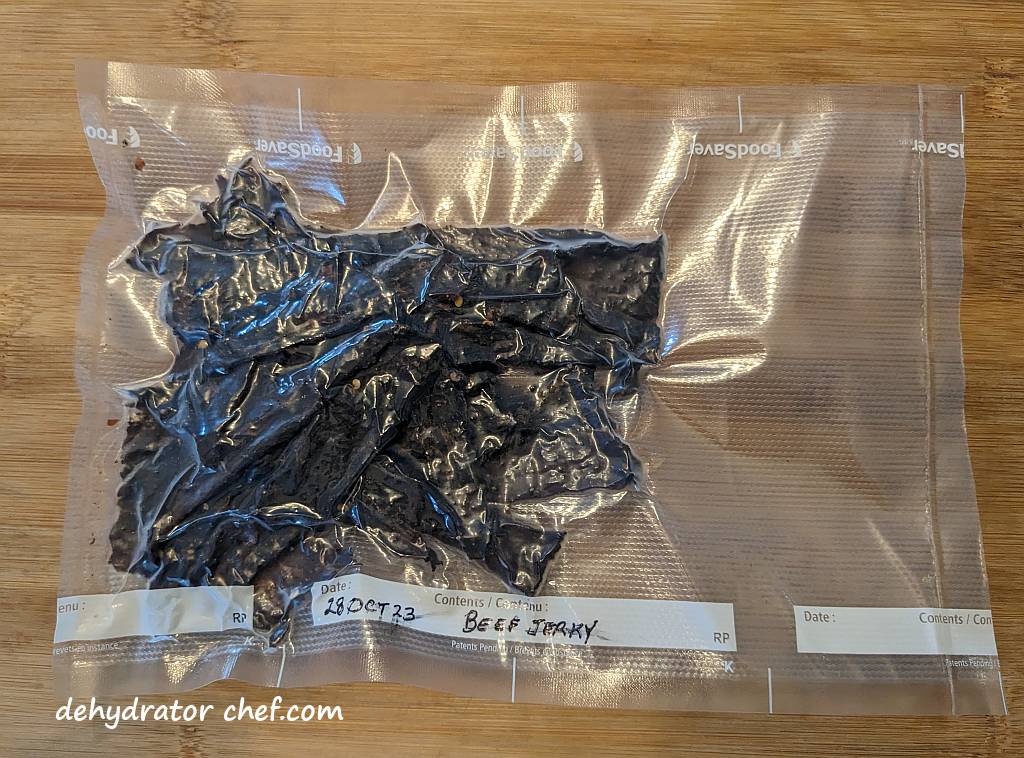
Vacuum sealing is superior to using ordinary freezer bags. Freezer bags are not airtight and will seep air over time. Properly sealed vacuum bags won’t.
How Long is the Beef Jerky Good For
The National Center for Home Food Preservation suggests that properly dried beef jerky can be stored for one to two months at room temperature.
Insider Tips
You might be tempted to double up on a recipe as good as this. That’s great. But don’t double up on how much goes into a single one-gallon zip-top marinade bag. Use no more than approximately one pound of meat strips plus marinade per bag.
Overloading the zip-top bag with more meat strips and marinade tends to overly crowd the ingredients and increase the chances of having to do a marinade part II. This means you have some meat strips that did not fully contact the marinade. Now, you must marinate the multicolored strips again so they are all uniform, meaning they were evenly marinated.
 |  |  |  |  | 0 reviews |
